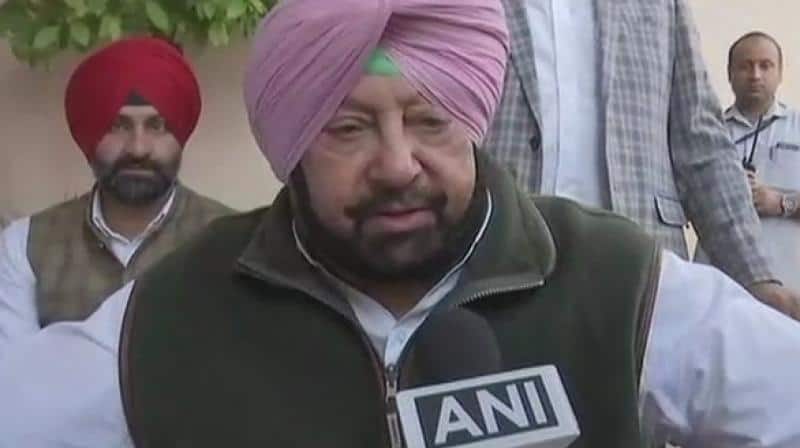New Delhi: Punjab Chief Minister Amarinder Singh on Monday suggested an all-party meeting chaired by the Prime Minister to evolve a consensus and formulate a national strategy for tackling the deteriorating water situation in the country.
He made the suggestion during a courtesy call on Jal Shakti Minister Gajendra Singh Shekhawat here.
Water is a national problem which needs to be discussed and resolved at national level, the Chief Minister told reporters in an informal chat after the meeting.
The all-party meetings could be held region-wise to make the process more streamlined and effective, with the Prime Minister chairing each of them, said Amarinder Singh, adding that meetings would help develop consensus on steps need to save the natural resource.
In response to a question, the Chief Minister said the SYL issue was not discussed during his meeting with the Union Minister as it was sub-judice.
He also said that the problem of Punjab’s Buddha Nallah in Ludhiana came up for discussion and he had assured Shekhawat that work was in progress to clean it.
The state government had set for itself a two-year deadline for the task, he added.
Amarinder Singh said that he told Shekhawat that sewerage treatment plants were being operationalised to ensure that the Buddha Nallah is not further messed up by the affluent from various industries, especially the dyeing industry.
The Punjab Chief Ministe, also pointing out that 85 per cent water goes into irrigation, said if 10 per cent of this water could be saved, India’s water crisis could be solved for the next 50 years.
Punjab, he said, could take the lead in this campaign, with incentives playing a major role in encouraging people to save water.
Amarinder Singh said the state government was planning to launch a major programme of groundwater recharging by using defunct tube wells.
He said that Shekhawat had asked Punjab to reduce the area under paddy cultivation, and in response, he had stressed the need for the Central government to support purchase of alternate crops like maize on the minimum support price.

